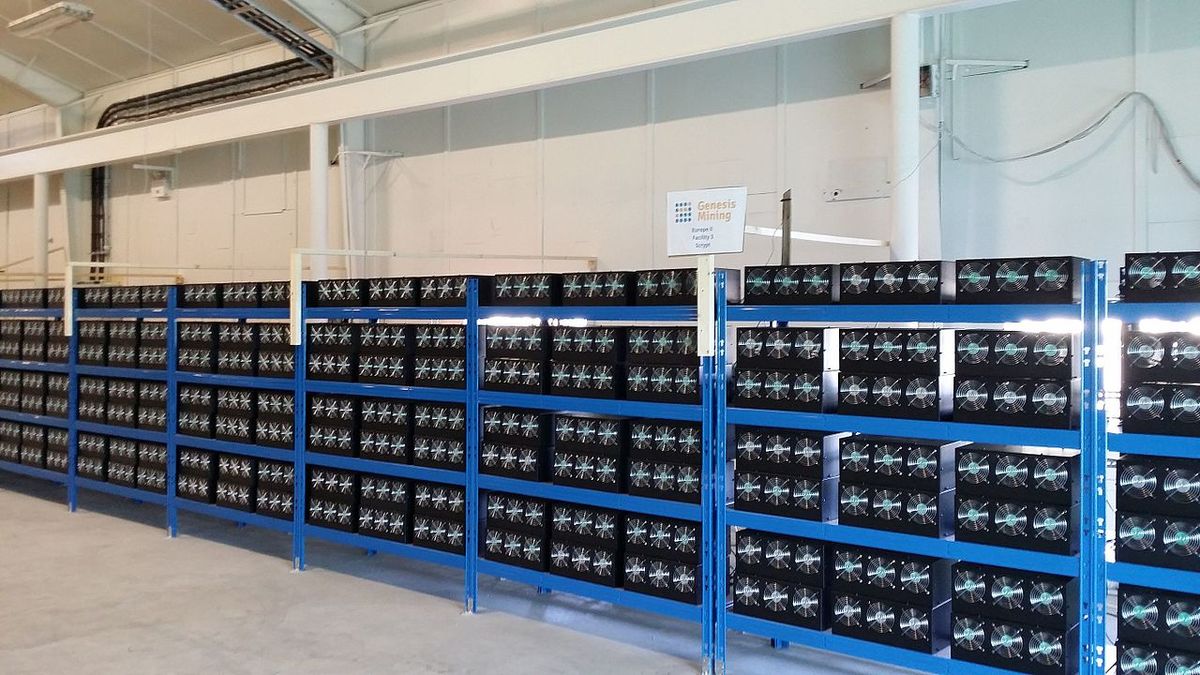The realm of cryptocurrency mining is not only complex in its technical aspects but also presents a labyrinthine set of legal challenges that miners must navigate. As the crypto industry continues to mature, understanding the legal landscape becomes increasingly critical for those involved in crypto mining. This article provides an essential guide to the key legal considerations in crypto mining, from regulatory frameworks and taxation to environmental laws and technological innovations.
Key Takeaways
- Miners need to proactively understand and comply with the global regulatory variance to avoid legal ramifications and ensure smooth operations.
- Taxation and reporting obligations are critical components of legal compliance for crypto miners, necessitating thorough documentation and adherence to local laws.
- Anti-money laundering measures are integral to crypto mining operations, requiring stringent checks to maintain the integrity of financial transactions.
- Environmental laws are increasingly impacting crypto mining practices, with sustainability and energy consumption being key legal considerations.
- Staying informed and adaptable is essential for miners, as the fast-paced evolution of crypto mining legislation and technology can significantly affect the legality and profitability of mining activities.
Understanding the Regulatory Framework for Crypto Mining

Global Regulatory Variance and Compliance
The regulatory environment for crypto mining is as diverse as the technology itself, with each country forging its own path in terms of rules and enforcement. Navigating this patchwork of regulations is a critical step for any mining operation seeking global compliance.
In some jurisdictions, crypto mining is embraced and regulated with a clear set of guidelines, while in others, it remains a grey area or is outright banned. This variance necessitates a robust understanding of the legal landscape to ensure operations remain within the bounds of the law.
- Regulatory Risk: The evolving landscape around digital assets presents uncertainties that can impact contracts and transactions involving crypto.
- Operational Risk: This includes system vulnerabilities and the risk of cyberattacks.
Ensuring compliance requires not only a keen eye on current regulations but also an anticipation of future legislative changes. Staying informed and adaptable is paramount for the longevity and legality of mining operations.
Taxation and Reporting Obligations for Miners
The taxation of crypto mining activities is a complex and evolving area of law. Miners must report their income from mining operations on their tax returns and may be subject to various forms of taxation depending on the jurisdiction. It is essential for miners to understand the specific tax obligations in their country, as failure to comply can lead to significant penalties.
- Determine the fair market value of mined cryptocurrencies at the time of receipt.
- Keep detailed records of expenses and income related to mining activities.
- Be aware of the deadline for tax reporting; in many jurisdictions, this is April 15th.
- Consult with a tax professional to ensure proper reporting and compliance.
The Internal Revenue Service (IRS) classifies cryptocurrency as property, and miners are expected to report their earnings accordingly. Staying informed and seeking legal advice is crucial to navigate the tax implications of crypto mining.
Anti-Money Laundering Measures and Crypto Mining
The intersection of crypto mining and anti-money laundering (AML) measures is a critical area for miners to navigate. Ensuring compliance with AML regulations is not only a legal requirement but also a means to maintain the integrity of the mining operation. Entities involved in cryptocurrency transactions must adhere to stringent regulatory standards, including Know Your Customer (KYC) norms, AML procedures, and Counter-Terrorism Financing (CTF) measures. These are in line with the Prevention of Money Laundering Act (PMLA) and the Foreign Exchange Management Act (FEMA).
Federal authorities are increasingly adept at identifying and targeting crypto laundering activities. It is imperative for mining operations, particularly those on a large scale, to be vigilant and ensure full compliance to avoid legal complications. The evolving nature of crypto law, with governments striving to establish clear guidelines, makes it essential for miners to stay informed and adapt to regulatory changes.
The proactive approach required from miners includes staying abreast of regulatory updates and integrating robust AML strategies into their operations.
Legal considerations are a cornerstone of the mining ecosystem, and regulatory uncertainty remains a significant challenge. Miners must be proactive, informed, and compliant to mitigate risks associated with legal ambiguities and to ensure the success and legitimacy of their mining endeavors.
The Intersection of Crypto Mining and Environmental Law

Sustainability in Mining Practices
The crypto mining industry is increasingly recognizing the importance of sustainable practices to reduce its environmental footprint. With higher cryptocurrency prices leading to more energy consumption, the focus on sustainability is not just an ethical imperative but also a strategic move to ensure long-term viability.
- Research and innovation: Efforts to develop energy-efficient mining hardware.
- Green Mining Initiatives: Adoption of renewable energy sources.
The shift towards using sustainably sourced energy is a testament to the industry’s commitment to environmental responsibility. Cost management is also crucial, as the cost of electricity and hardware can significantly impact profitability. The CoinShares Mining Report 2024 indicates a positive trend in mining efficiency and a reduction in emissions, highlighting the industry’s proactive stance on sustainability.
The integration of renewable energy in mining operations is not only beneficial for the environment but also enhances accessibility for miners, aligning with the demand for responsible cryptocurrency practices.
Legal Implications of Energy Consumption
The energy demands of crypto mining have become a focal point for legal scrutiny. Bitcoin mining consumes a significant amount of electricity, leading to concerns about its environmental impact and the legal ramifications that follow. The reliance on fossil fuels in some regions exacerbates the carbon footprint of mining operations, prompting a push for sustainable solutions.
Miners are increasingly adopting renewable energy sources, such as solar and wind power, to mitigate these concerns. This shift not only addresses environmental issues but also aligns with the evolving legal landscape that favors sustainability.
The legal landscape is adapting to the energy-intensive nature of crypto mining, with regulations aiming to balance innovation with environmental stewardship.
A recent legal battle in the US highlights the tension between regulatory bodies and the crypto mining industry. Bitcoin miners won a victory against the Department of Energy’s (DOE) attempt to quantify electricity use, signaling a complex relationship between industry practices and regulatory oversight. The DOE’s willingness to incorporate industry feedback suggests a potential for cooperative engagement in addressing energy-related concerns.
Navigating Environmental Regulations
Crypto mining’s energy-intensive nature has placed it under the scrutiny of environmental regulators. Miners must adapt to a variety of environmental laws that differ by jurisdiction, ranging from carbon footprint reduction mandates to specific energy consumption caps. Understanding these regulations is crucial for legal compliance and sustainable operation.
- Assess the local environmental laws and their applicability to crypto mining operations.
- Implement energy-efficient mining hardware and renewable energy sources.
- Develop strategies for carbon offsetting and reduction of greenhouse gas emissions.
The proactive engagement with environmental regulations not only ensures compliance but also positions mining operations as responsible corporate citizens, potentially improving public perception and market opportunities.
The evolving landscape of environmental regulation in the crypto mining industry requires a strategic approach to maintain operational legality and efficiency. Staying informed and adaptable to changes is essential for long-term success.
Legal Challenges and Opportunities in Bitcoin Mining Innovations

Adapting to Technological Advancements
In the ever-evolving world of cryptocurrency mining, stakeholders must stay informed and adaptable to keep pace with rapid technological advancements. These changes often lead to increased efficiency and cost-effectiveness but come with a need for continuous learning and adaptation.
- Artificial Intelligence (AI) in predictive maintenance
- Advanced audit and tax technology for compliance
- Integration of connected capital technologies
- Embracing technology transformation
- Leveraging alliances and ecosystems for strategic advantage
The integration of cutting-edge technologies not only streamlines operations but also presents new legal considerations that must be meticulously navigated to ensure compliance.
As the industry pushes forward, innovations such as cloud mining and environmentally friendly practices are reshaping the landscape. Miners must be vigilant in understanding how these changes affect the legal framework surrounding their operations, particularly in areas like DeFi integration, which introduces a complex layer of regulatory scrutiny.
DeFi Integration and Legal Considerations
The integration of Decentralized Finance (DeFi) into Bitcoin mining operations presents a complex legal landscape that miners and investors must navigate carefully. The rise of DeFi on the Bitcoin network introduces innovative financial services without traditional intermediaries, leveraging Bitcoin’s security and stability. However, this also brings about new regulatory challenges.
As DeFi platforms begin to intersect with Bitcoin mining, the need for legal compliance becomes paramount. Regulatory bodies such as the CFTC, IRS, SEC, and FinCEN are closely monitoring these developments, and their oversight is expected to increase. Miners and DeFi participants must stay informed about the latest regulatory requirements to avoid legal pitfalls.
The legal landscape of cryptocurrencies, including DeFi, is intricate and continuously evolving. Understanding the benefits, risks, and limitations of smart contracts is crucial for legal compliance.
SUGGESTIVE MEASURES:
- Proactively understand the nuances of blockchain and DeFi regulations.
- Ensure robust legal frameworks are in place to secure DeFi integrations.
- Anticipate intervention by federal authorities and prepare for compliance.
Looking ahead, compliance trends for 2024 suggest that the DeFi realm will continue to grow alongside potential legal battles. Staying ahead of these trends is essential for those involved in the DeFi space.
Cloud Mining and Regulatory Compliance
Cloud mining presents a unique set of regulatory challenges due to its decentralized nature and the involvement of multiple jurisdictions. Miners must navigate a complex web of laws that can vary significantly from one region to another. Ensuring compliance requires a thorough understanding of the legal requirements in each jurisdiction where the cloud mining service operates.
- Familiarize yourself with local regulations and licensing requirements.
- Establish clear contracts with cloud mining service providers.
- Monitor for changes in legislation that may affect cloud mining operations.
The importance of due diligence cannot be overstated when it comes to cloud mining. A proactive approach to compliance can prevent costly legal issues and ensure uninterrupted mining activities.
Crypto Mining Operations: Ensuring Legal Compliance
Setting Up Legally Compliant Mining Facilities
When establishing a mining operation, it’s essential to consider the legal structure that will best suit your business needs. Creating a crypto LLC or Corporation can provide significant advantages, such as limiting personal liability and optimizing tax strategies. For instance, a crypto mining LLC can focus on the specialized activity of mining, while also offering flexibility in management and profit distribution.
Legal compliance is not just about the initial setup; it’s an ongoing process. Miners must be vigilant about regulatory changes and ensure their operations adhere to current laws to avoid unwanted scrutiny. This includes understanding the implications of large-scale mining, which may attract attention from federal and state regulators.
Ensuring that your mining operations are legally compliant involves a multi-faceted approach, including staying informed about the latest regulatory developments and adapting to new legal requirements.
Incorporating sustainability into your mining practices is not only beneficial for the environment but may also be a legal necessity. As regulations evolve, miners are increasingly required to consider the impact of their energy consumption and seek renewable energy sources to power their operations.
Understanding Cross-Border Legal Issues
Crypto mining operations often span multiple jurisdictions, each with its own legal and financial regulations. This complexity can lead to challenges when a mining facility operates across borders. For instance, the protective ambit of domestic regulations may not extend to offshore platforms, leaving investors vulnerable in disputes.
- Legal Frameworks: Varying laws across regions such as Asia, Europe, and the Americas.
- Compliance: Adhering to international trade and investment sanctions.
- Dispute Resolution: Limited recourse in offshore disputes.
Ensuring compliance with cross-border legal issues requires a thorough understanding of the international legal landscape, including export controls, trade sanctions, and regional regulatory requirements.
Mining operators must navigate a web of international laws, which can include export controls, trade sanctions, and intellectual property rights. Staying informed and adaptable is crucial for maintaining profitability and legality in the dynamic field of crypto mining.
Avoiding Legal Pitfalls in Large-Scale Mining Operations
Large-scale crypto mining operations must navigate a complex web of legal requirements to ensure their activities remain within the bounds of the law. Regulatory uncertainty is a significant challenge, as jurisdictions around the world differ in how they govern cryptocurrency activities. To avoid legal pitfalls, miners must adopt a proactive approach, staying informed about regulatory changes and ensuring compliance.
- Stay abreast of legal considerations and regulatory changes.
- Ensure full compliance with local and international laws.
- Consult with legal experts to understand the nuances of crypto mining laws.
Proactive compliance is essential to mitigate risks associated with legal ambiguities and to operate successfully in the dynamic crypto mining landscape.
Understanding the legal landscape is not only about compliance but also about seizing opportunities. Miners who are well-informed and adaptable can leverage legal knowledge to gain a competitive edge and explore new avenues for profitability and growth.
The Future of Crypto Mining Legislation

Anticipating Changes in Crypto Law
As the crypto landscape continues to evolve, anticipating changes in legislation becomes a strategic priority for stakeholders. The dynamic nature of crypto law means that what is compliant today may not be tomorrow, making adaptability a key trait for those in the mining sector.
- Monitor legislative developments
- Engage with policy debates
- Adapt business practices accordingly
The importance of staying ahead in the legal game cannot be overstated. Proactive engagement with emerging laws will help mitigate risks associated with legal ambiguities.
Given the current pace of regulatory evolution, it’s reasonable to expect significant legal shifts in the near future. The U.S. Congress is wrestling over crypto, indicating that a full regulatory regime may not solidify until after 2024. However, court rulings and interim policies will continue to shape the landscape, requiring constant vigilance from miners and investors alike.
Impact of Legislation on Market Dynamics
Legislation plays a critical role in shaping the dynamics of the crypto market. Changes in laws and regulations can have immediate and profound effects on market stability, investor confidence, and the adoption of cryptocurrencies. For instance, the introduction of new tax laws or regulatory measures can lead to significant shifts in investment strategies and the operational approaches of crypto businesses.
- Regulatory clarity can attract institutional investors, boosting market maturity.
- Conversely, stringent regulations may stifle innovation and deter individual investors.
- Legal disputes and high-profile cases can influence public perception and market sentiment.
The evolving legal landscape requires market participants to be agile and well-informed to capitalize on opportunities and mitigate risks. As governments and regulatory bodies continue to grapple with the complexities of digital currencies, the market remains sensitive to legal developments, underscoring the importance of proactive engagement with the legislative process.
Strategies for Staying Informed and Adaptable
In the ever-evolving world of crypto mining, staying ahead of the curve is imperative. Miners and stakeholders must be proactive in their approach to learning and adapting to new regulations, technologies, and market shifts. Here are some strategies to maintain a competitive edge:
- Regularly monitor crypto law news for updates on legislation and compliance requirements.
- Subscribe to industry newsletters and updates from reliable sources.
- Attend webinars and conferences to gain insights from experts and network with peers.
- Utilize social media and online forums to engage with the community and exchange knowledge.
By embracing a culture of continuous learning and flexibility, miners can better anticipate and react to changes, ensuring their operations remain compliant and profitable.
It’s also crucial to understand that crypto mining requires budgeting, diversification, and staying informed. Recognizing market trends, assessing risks, and leveraging the right tools are essential components for thriving in this dynamic field.
Conclusion
In conclusion, navigating the legal landscape of crypto mining is a complex but essential task for anyone involved in this burgeoning industry. The regulatory environment is in a state of flux, with governments around the world striving to establish clear guidelines that address taxation, security, and anti-money laundering measures. Miners and stakeholders must remain vigilant, informed, and adaptable to ensure compliance and capitalize on the opportunities presented by the evolving landscape. By understanding the legal considerations, staying abreast of regulatory changes, and adopting strategic practices, participants in the crypto mining ecosystem can mitigate risks and contribute to the growth of a legitimate and confident digital currency market.
Frequently Asked Questions
How does global regulatory variance affect crypto mining compliance?
Global regulatory variance means that crypto mining regulations differ significantly from one jurisdiction to another. Miners must understand and comply with the specific legal requirements of each country they operate in, which can include licensing, reporting, and adherence to financial regulations.
What are the taxation and reporting obligations for crypto miners?
Taxation and reporting obligations for crypto miners vary by country but generally include declaring mining income for tax purposes and potentially reporting large transactions. Miners should consult with tax professionals to ensure they meet all local tax obligations and avoid legal issues.
What role do anti-money laundering measures play in crypto mining?
Anti-money laundering (AML) measures require miners to implement systems to prevent their operations from being used for money laundering. This includes performing customer due diligence, reporting suspicious activity, and keeping records of transactions.
How do environmental laws impact crypto mining operations?
Environmental laws impact crypto mining operations by regulating their energy consumption and carbon footprint. Miners may need to comply with emissions targets, utilize renewable energy sources, and adhere to specific waste management practices.
What legal considerations should be taken into account for Bitcoin mining innovations?
Legal considerations for Bitcoin mining innovations include intellectual property rights, compliance with financial regulations, and ensuring new technologies such as cloud mining and DeFi platforms meet existing legal standards.
How can crypto miners stay informed about changes in legislation?
Crypto miners can stay informed about legislative changes by monitoring legal developments, participating in industry associations, consulting with legal experts, and using specialized regulatory compliance services.






Join the top profit-paying website of 2024 at https://investurns.com/. Register now and get $30 instantly.
I appreciate the effort that goes into creating high-quality content, and this post was no exception. The insights and information were top-notch and made for a really engaging read. Keep up the great work!
Your honesty and vulnerability in sharing your personal experiences is truly admirable It takes courage to open up and I applaud you for it